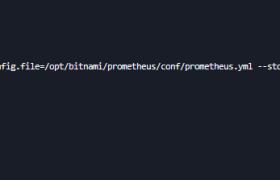linux seq命令详解
seq - print a sequence of numbers
意思就是:
产生从某个数到另外一个数之间的所有整数
例如:
用法1
seq 10结果如下:

用法2
平时我们用的比较多的参数 是 -s (使用指定的字符串分割数字(默认使用个"\n"分割))
seq -s + 10结果:
![]()
![]()
其他用法:
用法3
产生-2~10内的整数,增量为2
seq -2 2 10
用法4
产生98~101之间的整数,并且要求输出数字宽度相同,不足的用空格补足。
seq -f "%3g" 98 100
其他的可以参考 帮助信息

NAME
seq - print a sequence of numbers
SYNOPSIS
seq [OPTION]... LAST
seq [OPTION]... FIRST LAST
seq [OPTION]... FIRST INCREMENT LAST
DESCRIPTION
Print numbers from FIRST to LAST, in steps of INCREMENT.
Mandatory arguments to long options are mandatory for short options too.
-f, --format=FORMAT
use printf style floating-point FORMAT
-s, --separator=STRING
use STRING to separate numbers (default: \n)
-w, --equal-width
equalize width by padding with leading zeroes
--help display this help and exit
--version
output version information and exit
If FIRST or INCREMENT is omitted, it defaults to 1. That is, an omitted INCREMENT defaults to 1
欢迎来撩 : 汇总all


